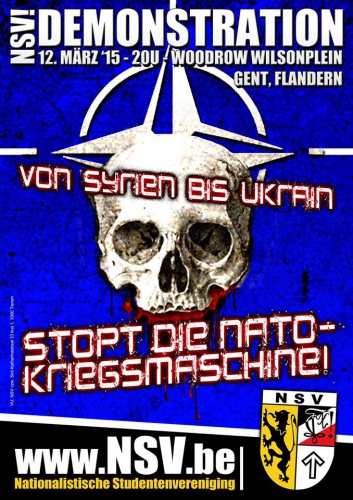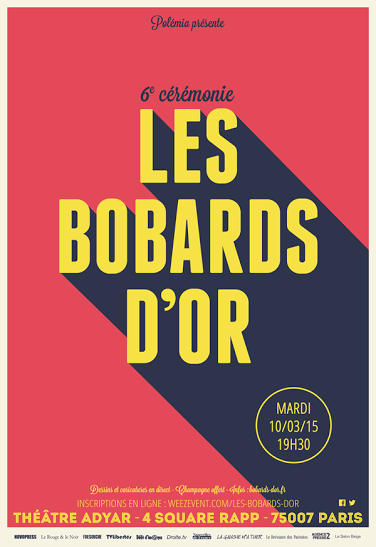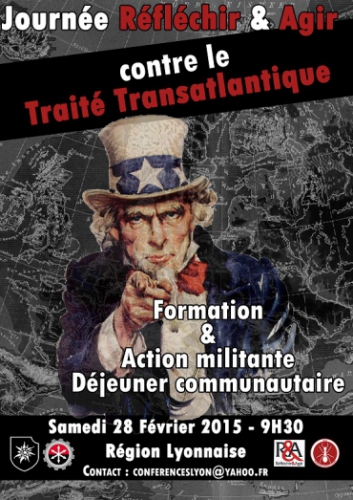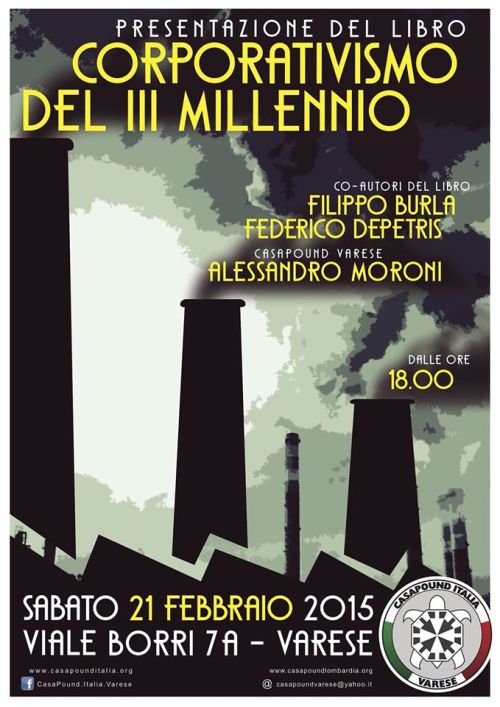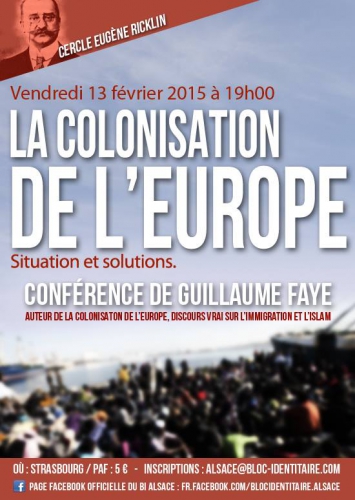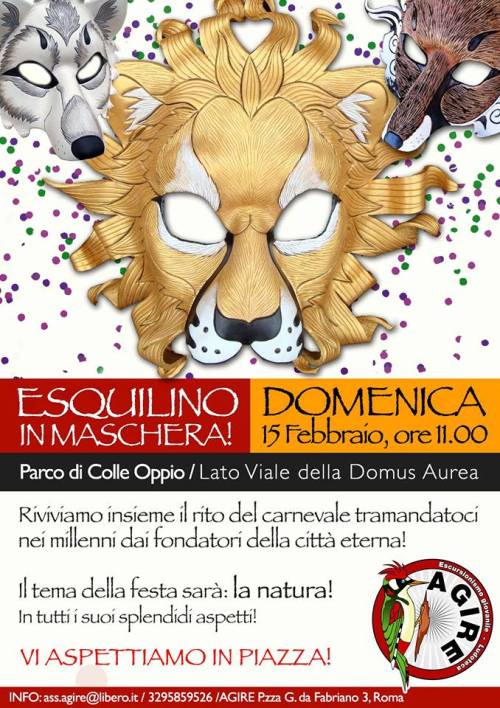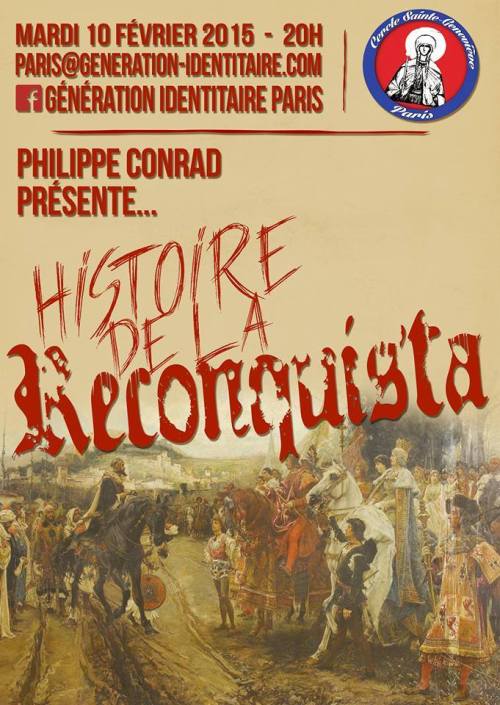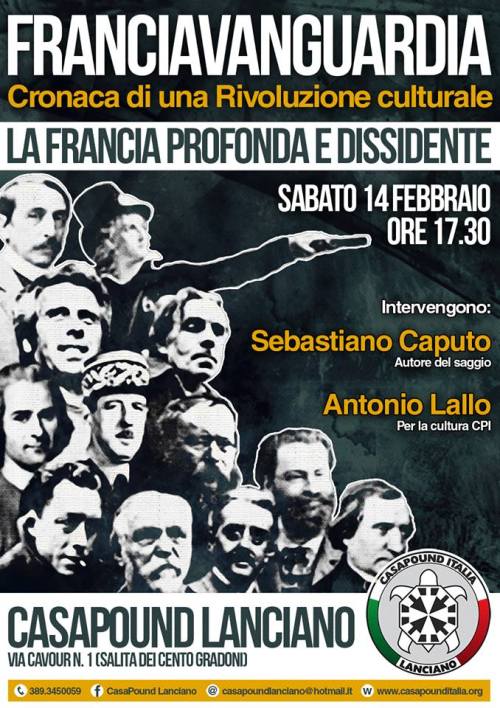 Ex: http://www.openrevolt.info
Ex: http://www.openrevolt.info
A symposium on the French writer Jean Parvulesco led by Vlad Sauciuc and the Romanian branch office of the TV news channel Russia Today was held in the Hotel Crystal Palace of Bucharest on February 28th and 29th 2015.
From his Moscow apartment relayed via Skype, Alexander Dugin joined the symposium to share the memories of his friend Jean Parvulesco, whom he met in the late 1980s at the occasion of his first contacts with representatives of the French New Right. Alexander Dugin recognized the fact that the real identity of Jean Parvulesco will always remain a mystery, but added that if we were to try to define his true identity, he would think of a manifestation of the Celtic bard Talesin entrusted with a secret mission (undoubtedly in reference to Jean Parvulesco description of Julius Evola as a secret agent of the Holy Roman Emperor Frederick II). In his second conference, Alexander Dugin explained the core concepts of Jean Parvulesco’s geopolitical ideas, especially that of the eschatological Endkampf that would conclude centuries of occult warfare between the the Altantist order and the Eurasist order beyond the scene of world politics.
Natalia Melentiyeva, Alexander Dugin’s wife, joined the conference and, as a philosophy professor, introduced the key concepts of Neoplatonism, the true philosophia perennis common to most esoteric hermeneutics of the three monotheistic religions, in order to show how the philosophy of Plato and Plotinus can help deciphering the main themes of Jean Parvulesco’s novels. She also explain how each culture can be said to have its specific logos, which explains why each nation or ethnic ground needs to define its own Fourth Political Theory.
Jean Parvulsco’s son, Constantin Parvulsco, shed light on the mysteries of Jean Parvulesco early life: escape from the communist regime in Romania swimming across the Danube river, labor camp in Yugoslavia, escape and rescue from a mysterious virgin in Medjugorje, student life in Paris with the artistic avant-garde, armed struggle in Spain and Africa, mystical experiences, meetings with Ezra Pound, Julius Evola, Martin Heidegger, Mircea Eliade or Dominique de Roux, late literary career and militant involvement with the French New Right as well as various secret societies.
Stanislas Parvulesco, Jean Parvulesco’s grandson talked about the links between Eurasianism and South America with an inspiring speech on the resistance against globalization, and neo-liberal capitalism, with references to Peron and Chavez, as well as to the struggle of native American tribes to maintain their traditions.
As an expert on René Guénon and his Traditionalist school, Claudio Mutti talked about Jean Parvulesco’s friendship with other well-known Romanian figures, such as Jean Vâlsan, Vasile Lovinescu, Mirchea Eliade or Emil Cioran. His second speech was dedicated on Romanian sacred geography, with abundant references to Vasile Lovinescu’s book on the Hyperborean Dacia.
With his flamboyant style, Laurent James gave a very interesting speech on the influence of the French writer Dominique de Roux on Jean Parvulesco, followed by the recitation of a beautify people on Romania written by Dominique de Roux and most probably inspired or even written by Jean Parvulesco. Laurent’s second speech was fascinating compilation of Roman Catholic prophesies focused on Petrus Romanus, the last pope, who may herald the end of the papacy and a return of the Latin Church to Orthodoxy.
Finally, Alex Wyeth gave a first speech focused on Jean Parvulesco’s meetings with Julius Evola in 1968 to show that Jean Parvulesco could be seen as a true disciple of Julius Evola through three core themes that can serve as keys to decipher Jean Parvulesco’s cryptic novels, namely Tantrism (reinterpreted in a Western hermetic or Catholic frame), the Holy “Eurasianist” Empire and the Order of differentiated men leading the ultimate underground battle against the princes and principalities of dissolution. His second speech gave an example of the occult geopolitical influence of secret societies and their link to Eurasianism through the example of Martinism in Russia.
Many other fascinating topics have been discussed shedding light on Jean Parvulesco’s life and work from many different angles.
Beside conferences, the speakers have been received with the legendary hospitality of their Romanian friends, meeting fascinating people as diverse as representatives of Romanian parliament as well as the Russian embassy, Hesychasts inspired by René Guénon, National Bolshevik activists, legionaries of the Romanian Iron Guard, scholars and members of esoteric orders united by the mysterious figure of Jean Parvulesco as well as by the core principles of Eurasianism and Alexander Dugin’s Fourth Political Theory.
Alex Wyeth March 6, 2015 for OpenRevolt.info



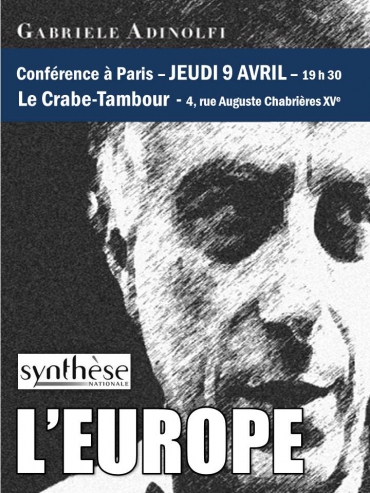

 del.icio.us
del.icio.us
 Digg
Digg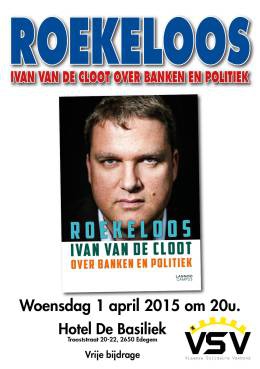

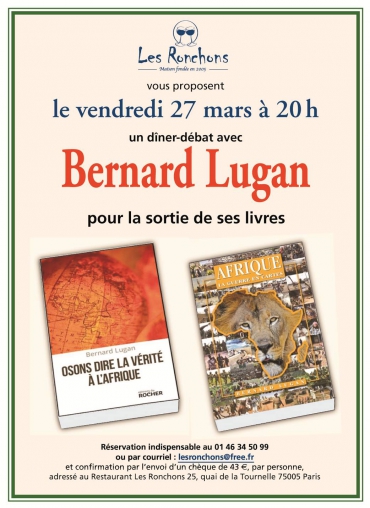

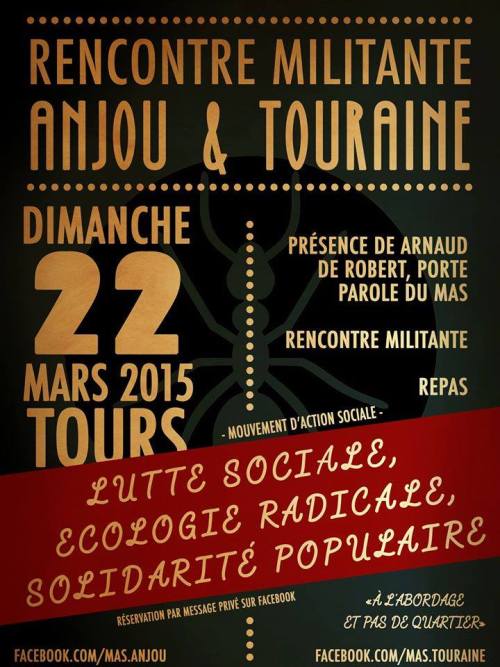

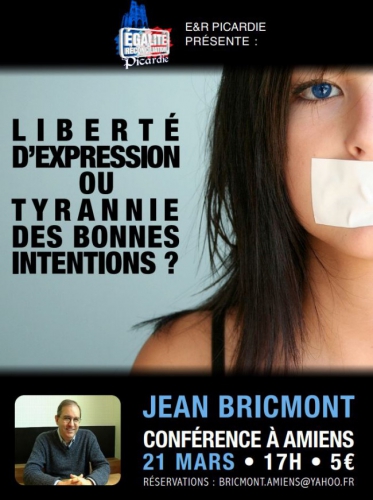

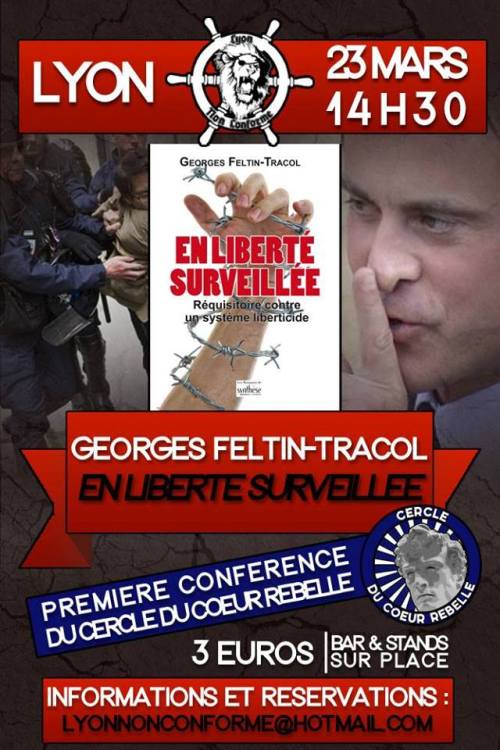
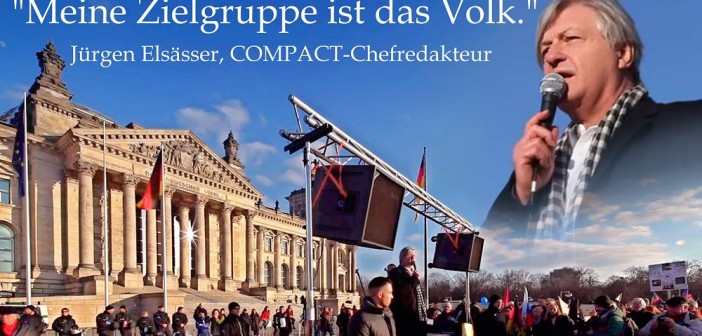
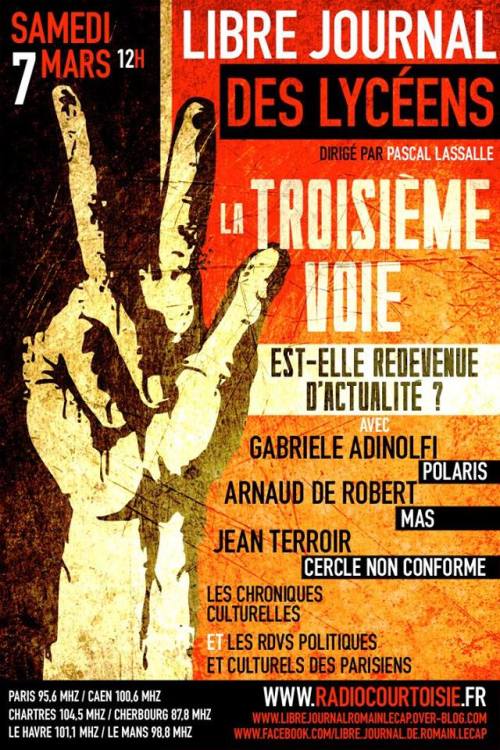
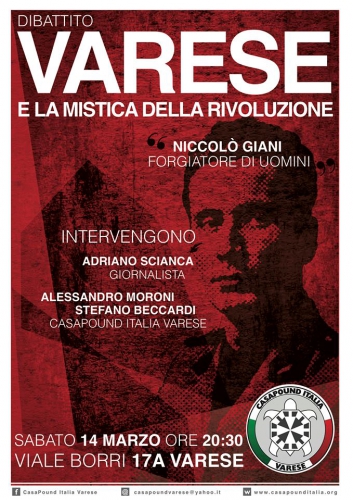
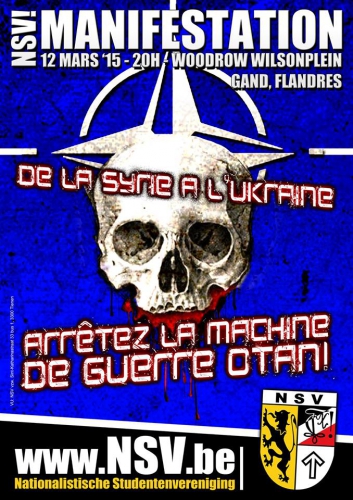
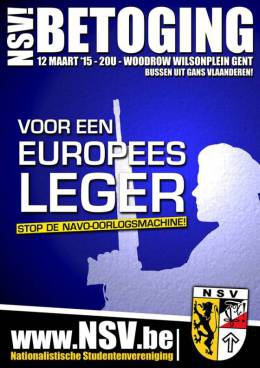 De Europese Unie en de NAVO worden tegenwoordig als de grootste vredesprojecten aller tijden beschouwd. Niets is meer ironisch. De Belgische staat is nog nooit in zoveel oorlogen verwikkeld geraakt als sinds haar toetreden tot de NAVO. Al haar oorlogen voor deze toetreding waren zuiver defensief, terwijl België inmiddels een ware agressor is geworden. Enkel al de laatste 20 jaren heeft België unilateraal de oorlog verklaard aan Joegoslavië, Servië, Afghanistan en Libië. Daarnaast heeft ze als NAVO-lidstaat indirect de oorlog(-en) van de VS met Irak gefaciliteerd.
De Europese Unie en de NAVO worden tegenwoordig als de grootste vredesprojecten aller tijden beschouwd. Niets is meer ironisch. De Belgische staat is nog nooit in zoveel oorlogen verwikkeld geraakt als sinds haar toetreden tot de NAVO. Al haar oorlogen voor deze toetreding waren zuiver defensief, terwijl België inmiddels een ware agressor is geworden. Enkel al de laatste 20 jaren heeft België unilateraal de oorlog verklaard aan Joegoslavië, Servië, Afghanistan en Libië. Daarnaast heeft ze als NAVO-lidstaat indirect de oorlog(-en) van de VS met Irak gefaciliteerd. 